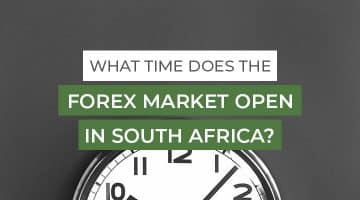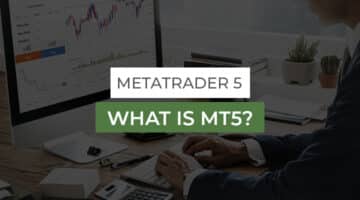What is a Margin Call?

In this article
The traders need to know about margin calls, how they arrive, and avoid them for successful trading in the trade market. Margin Call is like a warning for the traders that alerts them to deposit more funds in their trading account to free more margin to avoid losing positions. Margin Call is determined when you open your trading account, and your broker sets a fixed percentage of it that is also mentioned in the account specifications.
The margin level falls when the trade market moves against your open positions. Once it falls from a certain percentage fixed by the broker, the trader receives a notification in their terminal. Overall margin calls alarm the traders that the trader’s account is approaching a Stop Out level.
Margin call
When the trader’s position enters the negative territory because of a market movement against the open positions, the trader’s account margin level falls from a fixed percentage. If this level falls below 100%, the trader’s margin requirements will not be fulfilled with this margin level. Because of this, the trader’s equity also falls. In this situation, the broker will request a margin call informing the trader that he has to top up his equity level to meet his margin requirements. The trader will receive this warning through an email or a notification.
A trader should avoid the margin call and update himself about the conditions that cause a margin call. Suppose a trader’s account margin level falls and he fails to raise the equity level in his account. In that scenario, some or all of the trader’s open positions in the market will be liquidated. The trader will suffer from a great loss. A trader can avoid margin calls by regularly monitoring and funding his account. He should also use a stop-loss order on every trade to avoid losses.
Margin level
When a trader opens a position in a market, deposits in the account for trading will be held as a security by the broker. And the total amount of his balance in the account is held by the broker to keep his position open in the market. So, the money locked up is referred to as margin. So, the more the trader’s positions are opened by the trader, the more deposits from the trader’s account are used as margin by the broker. And the amount of money available in the trader’s account to open more positions is referred to as available equity. So the available equity is used to calculate the margin level.
Margin level is determined as a ratio of equity and expressed in percentage. The formula to find out the margin level is:
Margin level = (equity / used margin) x 100
The difference in margin and leverage in trading
You need to know the difference between margin and leverage. These terms are related to each other, but they have different meanings. As the margin is already discussed, the deposit is in the trader’s account to open a position. Meanwhile, the leverage allows a trader to open larger positions with a limited capital outlay.
For example, a leverage of ratio 30:1 determines that a trader can open a position worth 30 times their initial investment. If a trader has $5000 deposits in his trading account to open a position, he can control a trading position worth $150000 if the ratio is 30:1. Therefore, leverage is related to margin rate and determines what specific percentage is required to open a position for trade. So, if the leverage is of ratio 30:1, its margin rate will be 3.3%. If the ratio is 20:1, then the margin rate will be 5%. And if the ratio is 10:1, it will be equal to a 10% margin rate.
That’s why leverage is essential for the trader in the foreign exchange market, enabling the trader to make large profits from a small capital. But sometimes, it will also result in losses in the trade market when leverage is not properly managed and known by the trader. So it is important for the trader not to use it excessively to avoid high risks and losses and use it after taking precautions.
Causes of a margin call in trading
A margin call is received when the margin level of the trader’s account falls from a fixed percentage, so the trading account requires more funding to avoid it. So in this situation, the trader positions in the market will be liquidated.
Managing the mechanism of margin level is necessary for the trader to avoid the risks effectively. For example, a margin call is more likely to occur when traders used a large portion of the equity to open a position and are left with very low amounts to cover the losses. However, some specific causes below cause a margin call and can create resistance for the trader in a foreign exchange market.
- Relying on a losing trade for a long period that used all the margin.
- Use of leverage excessively by taking high risks.
- A trading account with limited funds forces you to over trade with too little margin left for absorbing the loss.
- Trading without monitoring Stops mostly when the prices move in the opposite directions truculently.
How to avoid a margin call?
You can avoid a margin call if you plan your trading well. For example, you should not allocate unlimited risk to a single position. Instead, cap your risk to a certain percentage, like 2% per position. Then, if you lose, your loss will not exceed 2% of your deposit. If, in any case, you reach near the margin call level, you should replenish your account with more funds to avoid auto-close of your running positions.
Bottom line
Overall the margin is important for the traders for successful trading, but he also has to manage the available equity in the account. Therefore, a trader should observe the account’s margin level and not use leverage excessively when the funds in the account are limited. As much as the trader takes the high risk to make larger profits, the greater will be the chances of losses.
Jason Morgan is an experienced forex analyst and writer with a deep understanding of the financial markets. With over 13+ years of industry experience, he has honed his skills in analyzing and forecasting currency movements, providing valuable insights to traders and investors.
Forex Content Writer | Market Analyst
Relevant Posts

What Time Does the Forex Market Open in South Africa?
[top_three_brokers] There are four major Forex centres worldwide: New York, London, Tokyo, and Sydney. Because…
Read more

Forex Signals – Does it Improve Your Trading?
[top_three_brokers] If you are new to forex trading, you might have heard of forex trading…
Read more

Bid and Ask Price Explained
[top_three_brokers] Like other financial markets, forex has a bid and ask price. These prices update in…
Read more

Forex Trading App – Trading Simplicity?
[top_three_brokers] If you are an active forex trader, you love to have access to market…
Read more

How Does Forex Trading Work?
[top_three_brokers] Forex, or the foreign exchange market, differs significantly from stock trading. Therefore, these differences…
Read more

MetaTrader 5 – What is MT5?
[top_three_brokers] MetaTrader 5 is a multi-asset, multi-functional trading platform used by traders from around the…
Read more

Supply and Demand Zones
[top_three_brokers] You may hear the term "supply and demand" in forex trading. They are the…
Read more

What is a lot in Forex – Lots sizes Explained
[top_three_brokers] One of the basic terms that you are sure to come across time and…
Read more
4 Tips for Choosing a Forex Broker
If you are a trader in the Forex or foreign exchange market, then there is…
Read more

What is a Pipette in Forex?
[top_three_brokers] When we get into a conversation about Forex trading, you will come across different…
Read more

What Time Does the Forex Market Open in South Africa?
[top_three_brokers] There are four major Forex centres worldwide: New York, London, Tokyo, and Sydney. Because…

Forex Signals – Does it Improve Your Trading?
[top_three_brokers] If you are new to forex trading, you might have heard of forex trading…

Bid and Ask Price Explained
[top_three_brokers] Like other financial markets, forex has a bid and ask price. These prices update in…

Forex Trading App – Trading Simplicity?
[top_three_brokers] If you are an active forex trader, you love to have access to market…

How Does Forex Trading Work?
[top_three_brokers] Forex, or the foreign exchange market, differs significantly from stock trading. Therefore, these differences…

MetaTrader 5 – What is MT5?
[top_three_brokers] MetaTrader 5 is a multi-asset, multi-functional trading platform used by traders from around the…

Supply and Demand Zones
[top_three_brokers] You may hear the term "supply and demand" in forex trading. They are the…

What is a lot in Forex – Lots sizes Explained
[top_three_brokers] One of the basic terms that you are sure to come across time and…
4 Tips for Choosing a Forex Broker
If you are a trader in the Forex or foreign exchange market, then there is…

What is a Pipette in Forex?
[top_three_brokers] When we get into a conversation about Forex trading, you will come across different…


